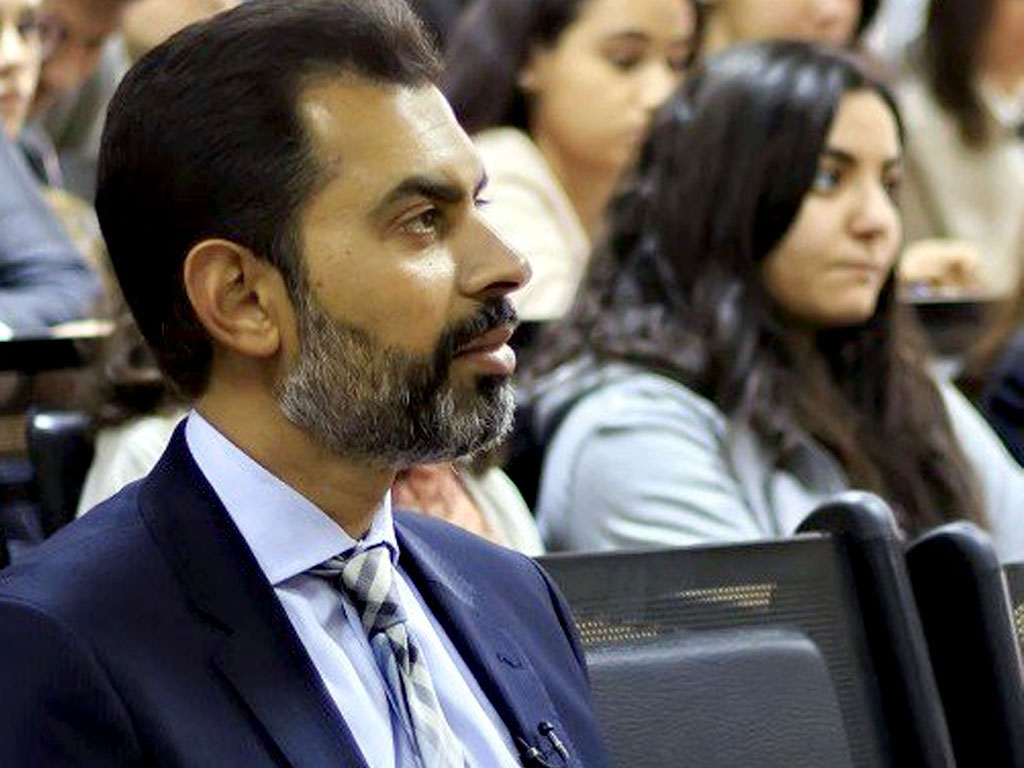Towards stabilisation?

Governor State Bank of Pakistan (SBP), Dr Reza Baqir, in an unprecedented press conference where he took questions from journalists from all major cities, expressed his unequivocal support for the International Monetary Fund's (IMF's) prior conditions reflected in its 12 May 2019 press release (and uploaded on its website); and stated that "the worst is over and the country is moving towards stability on the back of steps taken by the country's economic team and with the support of friendly countries." The two IMF specific prior conditions for the SBP were a raise in the discount rate and the adoption of a market-based exchange rate, as opposed to a free float, which, the Governor added, implies that "we keep a close eye on exchange rate and help market stabilise in case of volatility in the market, but there would be no fixed rate like in the past." He claimed that the market-based exchange rate had already led to a decline in the current account deficit from 20 billion dollars last year to 13 billion dollars by the end of the current year. A check on inflation, regarded as the responsibility of any central bank, was being controlled, he added, no doubt due to the SBP's adherence to IMF prior conditions "and will help control the fiscal deficit". And finally, he claimed that the SBP would no longer be lending to the government and added that the staff-level agreement with the IMF will send positive signals to all segments of the economy, investors and financial institutions.
The IMF's standard conditions for central banks are therefore being implemented by the SBP though the jury is still out as to what would be the precise dollar-rupee parity when the rupee ceases to erode its value at the present alarming rate, and at what level would the discount rate cease to be raised further? There seems to be an agreement amongst independent economists that the optimal situation with respect to both the policies in operation has not yet been reached.
Not borrowing from the SBP is also a standard normal IMF condition and was in effect during the previous two loans - in 2008 and again in 2013. However, one would urge the SBP Governor or the Finance Advisor to clarify as to how the budget for the next fiscal year envisions a whopping 406 billion rupee SBP profit as a federal non-tax revenue. In this regard, however, noted economists Dr Hafiz Pasha and Shahid H. Kardar have raised a legitimate question: 'Is this possible when a commitment has been made that there will be no borrowing from the SBP in 2019-20?'
Be that as it may, imports declined in July-April 2019 in comparison to the comparable period of the year before - to 44 billion dollars from 46.3 billion dollars and exports for the comparable period remained more or less the same - 20.48 billion dollars last year to 20 billion dollars in July-April this year. However, trade figures for policies implemented by the incumbent SBP Governor - post-12 May when the staff-level agreement was reached - has not yet been released. But imports have declined because of depreciation in value of the rupee, increase in the discount rate, imposition of regulatory duties and completion of a phase of projects under the China Pakistan Economic Corridor (CPEC) leading to lower imports though once the next phase begins imports may rise again as per officials in the Ministry of Finance. There is also a likelihood that remittances would continue to increase, on the back of a rise in remittances the world over, and the friendly countries mentioned by the Governor agree to roll over their one year loan - Saudi Arabia's 3 billion dollars and the United Arab Emirates' 2 billion dollars disbursed. However, the critical question is whether the economic team has any plan B in the event that the current account deficit begins to rise again?
It is critical to acknowledge that the growth rate of country's economy slowed down to around 3.3 percent which independent economists claim is an overestimation. And next year the growth forecast in budget documents is even less - at 2.4 percent. The question is what is the likelihood of the IMF-supported policies achieving stabilisation? Nobel laureate Joseph E. Stiglitz arguing against the IMF's standard normal conditions maintains that "raising interest rates to protect their currencies did not succeed in warding off the speculators and simply intensified the pain for domestic firms... They (IMF) made the same mistake as they did in East Asia, which is pushing extremely contractionary fiscal policies on a country in recession. And then they said that if Argentina only sticks to it long enough, it'll eventually recover." In another article Stiglitz argued: "My view was that the problems of development are very complex and there is not one monopoly view. Our role as advisers was not to tell people the one true way but to lay out what we know and what we don't know."
To conclude, the government is clearly committed to the IMF programme with its associated conditions. The question that is as pertinent with respect to the newly inducted economic team as it was to the old team is whether there is a plan B in the event that Pakistan goes into further recession and the country's tax machinery fails to achieve revenue target for financial year 2019-20.
























Comments
Comments are closed.